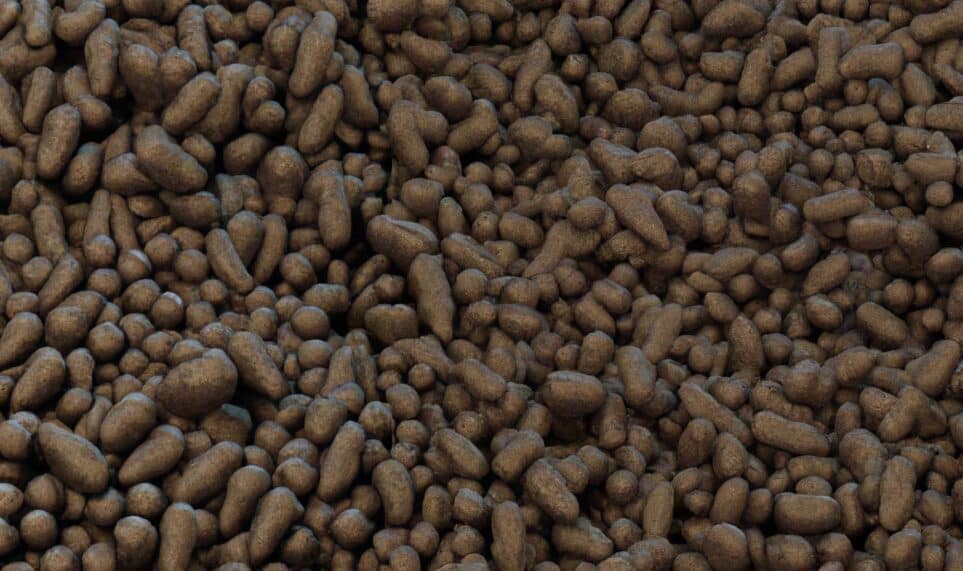Professional Rodent Dropping Cleanup and Disinfection
When identifying animal droppings, one of the most common questions customers ask me is what kind of feces this is. But determining which animal left these droppings in your attic or elsewhere can be tricky, as a lot goes into accurately identifying rodent poop. Some of the main factors to consider include size, shape, color, texture, and whether or not there are any visible fragments or bones in the poo.
Looking at these characteristics of rat poop alone might leave you scratching your head and unsure how to distinguish it from other types of waste. However, luckily several visual clues can help you tell whether or not you’re looking at rat feces or something else entirely. Some of the most common indicators include long tail hairs still attached to the mass or pellets; parallel striations and irregular edges on the pellets; spherical shape with pointed ends; dark or tan coloration; and firm consistency with evidence of hard grains throughout.
So if you’re ever wondering whether or not a particular dropping in your attic could be rat feces, just use these simple tips to help assess its appearance and determine whether it’s likely to have come from a rat. In doing so, you can take the necessary steps to eliminate the rodents and clean up their mess.
Rat droppings are typically between 1 and 3 cm in length, making them about the size of a staple. They may also be black in color, resembling small seeds, though this can vary depending on the type of rodent. If you notice rat feces that is dry and brittle, it is likely not very fresh. In contrast, soft and mushy rat droppings are relatively recent.
Additionally, it’s important to keep an eye out for white tips at the end of rat droppings, as these may be from a different type of animal altogether. Whether found in or around your home or attic, rodent poop can provide valuable insight into the hidden world of these intruders. So the next time you see some rat droppings around your property, don’t panic – just take the time to examine them more closely and figure out their origin.
When trying to identify rodent poop or determine if you have rodents in your attic, it is important to look for certain distinguishing factors. First, rodent poop tends to be fairly small – typically about the size of a seed – and can range in length from half an inch up to three centimeters in thickness.
Additionally, because rodent populations tend to grow rapidly, you can expect to find a lot of this type of excrement in your attic, particularly if the rodents are breeding or feeding at high rates. Finally, depending on the size and age of the rodents present, their droppings may be scattered haphazardly throughout the space or form large clumps where they have assembled. Whether you are looking for signs of mice or rats, knowing what to look for when inspecting your attic is essential for effective rodent control.
Regardless of what animal your poop belongs to, it is important that you take precautions to avoid coming into contact with feces in your attic. Rather than attempting to remove the poop on your own, it is advisable to call a professional wildlife control team who will have the proper equipment and expertise needed for safe and effective wild animal poop removal.
One potential danger of touching rat feces is the presence of harmful bacteria and insects that can put your health at risk. For example, roundworm is a nasty parasite that can be transmitted via rat feces, causing a range of serious health issues such as blindness and paralysis. Therefore, it is essential that you are properly trained and equipped before attempting to tackle the task of removing rat poop on your own.
Ultimately, the health risks associated with handling wild animal poop far outweigh any perceived benefits or cost savings from taking matters into your own hands. So if you discover stool in your attic or another area of your home, be sure to take the necessary precautions and safely remove it with the help of a qualified professional. In doing so, you can rest assured knowing that you have taken all necessary steps to protect yourself and your family from harm.
Rodents will often poop wherever they are walking. This means that their feces will be all throughout the attic, in the insulation, under the insulation, and everywhere else. You will need to sanitize the attic in order to eliminate any bacteria. There’s no logic behind why rodents only defecate in specific locations at the same time. The only way to ensure that all of the bacteria are eliminated is to sanitize the entire area. This may seem like a lot of work, but it is essential to protecting your health.
Many people are surprised to learn that rodent feces can have a very strong and unpleasant odor. This is because the feces is mixed with urine, which gives it an ammonia-like smell. In addition, the feces can also start to rot, which makes the smell even worse. If you have a rodent problem in your home, you may also notice flies and other parasites around the feces. This is because they are attracted to the odor. It is important to be careful around rodent feces as they can harbor diseases that can be inhaled or ingested. Eggs from parasites can also be found in the feces, so it is best to avoid contact with it altogether.
When dealing with rats in the attic, it is important to hire a professional rat trapper and removal company. Professionals like Wildlife Removal Services of Florida use special equipment and safety measures to properly remove rat feces from attics safely. This includes using hazmat suits and other respiratory protection equipment to prevent inhalation of any harmful diseases caused by rat poop or urine.
In addition, professionals will completely remove all traces of the rats in your attic, ensuring that your home is clean and sanitized after their removal. Ultimately, hiring a professional rat removal company will help to ensure that not only are you protected from potential respiratory diseases and other health risks associated with rats, but that your attic remains free from the threat of these pests as well.
If you have noticed rat droppings around your property, it is important to take immediate action in order to eliminate the infestation and protect your home and family from potential harm. Not only does rat poop smell unpleasant and unhygienic, but it can also contain dangerous bacteria and disease-causing pathogens that can be harmful if ingested by humans or pets. Additionally, rats often defecate in areas such as residential pools, lakes, rivers, and ponds, further expanding the risk of contamination to surrounding environments and wildlife.
If you find rat droppings anywhere near your home or attic space, it is imperative to stay away from these areas and avoid contact with the feces at all costs. This also means keeping your pets and children away from any potentially hazardous conditions associated with rat poop. Furthermore, any rat excrement found in or around your house should be cleaned up as soon as possible to prevent the spread of unwanted pests or diseases.
Because attic spaces are an ideal nesting ground for rats seeking refuge from harsh weather conditions, homeowners should always be vigilant about checking these areas for signs of an infestation. If you suspect that there are rats living in your attic space, contact a professional pest control service right away to help get rid of the problem and protect your home from potential harm.

